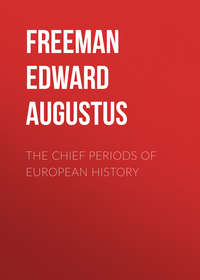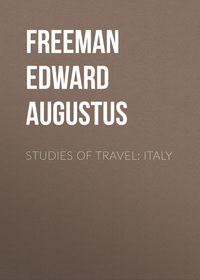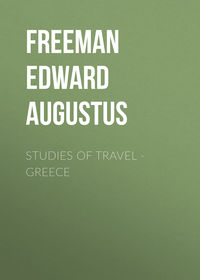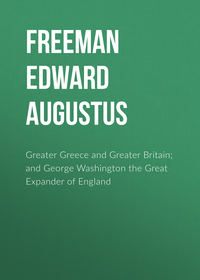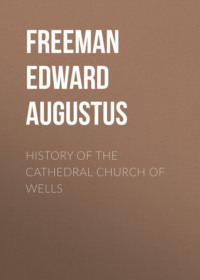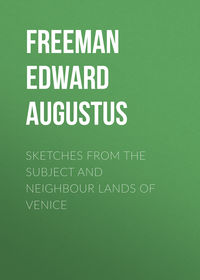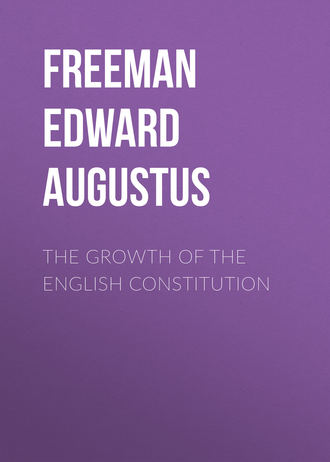 полная версия
полная версияThe Growth of the English Constitution
For many ages it was a legal doctrine universally received that Parliament at once expired at the death of the reigning King. The argument by which the lawyers reached this conclusion is, like most of their arguments, altogether unanswerable, provided only we admit their premisses. According to the lawyers’ conception, whatever might be the powers of Parliament when it actually came together, however much the King might be bound to act by its advice, consent, and authority, the Parliament itself did nevertheless derive its being from the authority of the King. Parliament was summoned by the King’s writ. The King might indeed be bound to issue the writs for its summons; still it was from the King’s writ that the Parliament actually derived its being and its powers. By another legal assumption, the force of the King’s writ was held to last only during the lifetime of the King who issued it. It followed therefore that Parliament, summoned by the King’s writ and deriving its authority from the King’s writ, was dissolved ipso facto by the death of the King who summoned it. Once admit the assumptions from which this reasoning starts, and the reasoning itself is perfect. But what is the worth of the assumptions? Let us see how this mass of legal subtlety would have looked in the eyes of a man of the eleventh century, in the eyes of a man who had borne his part in the elections of Eadward and of Harold, and who had raised his voice and clashed his arms in the great Assembly which restored Godwine to his lands and honours145. To such an one the doctrine that a national Assembly could be gathered together only by the King’s writ, and the consequent doctrine that the national Assembly ceased to exist when the breath went out of the King’s body, would have seemed like the babble of a madman. When was the gathering together of the national Assembly more needed, when was it called upon to exercise higher and more inherent powers, than when the throne was actually vacant, and when the Assembly of the nation came together to determine who should fill it? And how could the Assembly be gathered together by the King’s writ when there was no King in the land to issue a writ? The King’s writ would be, in his eyes, a convenient way in ordinary times for fixing a time and place for the meetings of the Assembly, but it would be nothing more. It would be in no sense the source of the powers of the Assembly, powers which he would look upon as derived from the simple fact that the Assembly was itself the nation. In his eyes it was not the King who created the Assembly, but the Assembly which created the King. The doctrine that the King never dies, that the throne never can be vacant, would have seemed gibberish to one who had seen the throne vacant and had borne his part in filling it. The doctrine that the King can do no wrong would have seemed no less gibberish to one who knew that he might possibly be called on to bear his part in deposing a King. Three of the most famous Assemblies in English history have ever been puzzles in the eyes of mere legal interpreters; to the man of the eleventh century they would have seemed to be perfectly legal and regular, alike in their constitution and in their acts. The Assembly which in 1399 deposed Richard the Second and elected Henry the Fourth, though summoned by the King’s writ, was not opened by his commission, and it seems to have shrunk from taking the name of Parliament, and to have acted only by the name of the Estates of the Realm. As an Assembly which was in some sort irregular, it seems to have shrunk from going through the usual forms of a regular Parliament, and, though it did in the end exercise the greatest of parliamentary powers, it seems to have been afraid to look its own act in the face. Richard was deposed, but his deposition was mixed up with a resignation of the Crown on his own part, and with a challenge of the Crown on the part of Henry. Then, as a demise of the Crown had taken place, it was held that the same legal consequences followed as if that demise had been caused by the death of the King. It was held that the Parliament which had been summoned by the writ of King Richard ceased to exist when Richard ceased to be King, and, as it was not thought good to summon a new Parliament, the same Parliament was, by a legal fiction, summoned again under the writ of King Henry146. All these doubts and difficulties, all these subtleties of lawyers, would have been wholly unintelligible to a man of the eleventh century. In his eyes the Witan would have come together, whether by King Richard’s writ or not it mattered little; having come together, they had done the two greatest of national acts by deposing one King and choosing another; having done this, if there was any other national business to be done, there was no reason on earth why they should not go on and do it. Take again another Assembly of equal importance in our history, the Convention which voted the recall – that is, in truth, the election – of Charles the Second. That Assembly succeeded a Parliament which had ventured on a still stronger step than deposing a King, that of sending a reigning King to trial and execution147. It was not held in 1649 that the Long Parliament came to an end when the axe fell on the neck of Charles the First, but the doctrine that it ought to have done so was not forgotten eleven years later148. And the Convention which was elected, as freely as any Parliament ever was elected149, in answer to the vote of the expiring Long Parliament, was, because it was so elected and not in answer to the King’s writ, looked on as an Assembly of doubtful validity. It acted as a Parliament; it restored the King; it granted him a revenue; and it did a more wonderful work than all, for it created itself, and passed an Act declaring itself to be a lawful Parliament150. Yet, after all, it was deemed safer that all the Acts of the Convention Parliament should be confirmed by its successor which was summoned in due form by the King’s writ. These fantastic subtleties, subtleties worthy of the kindred device by which the first year of Charles’s reign was called the twelfth, would again have been wholly unintelligible to our man of the eleventh century. He might have remembered that the Assembly which restored Æthelred – which restored him on conditions, while Charles was restored without conditions – did not scruple to go on and pass a series of the most important decrees that were passed in any of our early Assemblies151. Once more again, the Convention which deposed James and elected William, seemed, like that which deposed Richard and elected Henry, to doubt its own existence and to shrink from its own act. James was deposed; but the Assembly which deposed him ventured not to use the word, and, as an extorted abdication was deemed expedient in the case of Richard, so a constructive abdication was imagined in the case of James152. And the Assembly which elected William, like the Assembly which elected Henry and that which elected Charles, prolonged its own existence by the same transparent fiction of voting itself to be a lawful Parliament. Wise men held at the time that, at least in times of revolution, a Parliament might be called into being by some other means than that of the writ of a King. Yet it was deemed that some additional security was given to the existence of the Assembly and to the validity of its acts by this second exercise of the mysterious power of self-creation153. Once more in the same reign the question was brought forward whether a Parliament summoned by the joint writ of William and Mary did not expire when Mary died and William reigned alone. This subtlety was suggested only to be contemptuously cast aside; yet it may be fairly doubted whether it was not worth at least as much as any of the kindred subtleties which on the three earlier occasions were deemed of such vast importance154. The untutored wisdom of Englishmen, in the days when we had laws but when those laws had not yet been made the sport of the subtleties of lawyers, would have seen as little force in the difficulties which it was deemed necessary to get over by solemn parliamentary enactments as in the difficulty which neither House of Parliament thought worthy of any serious discussion.
And now what has modern legislation done towards getting rid of all these pettifogging devices, and towards bringing us back to the simpler doctrines of our forefathers? Parliament is still summoned by the writ of the Sovereign; in settled times no other way of bringing it together can be so convenient. But, if times of revolution should ever come again, we, who do even our revolutions according to precedent, shall probably have learned something from the revolutionary precedents of 1399, of 1660, and of 1688. In each later case the subtlety is one degree less subtle than in the former. The Estates of the Realm which deposed Richard were changed into a Parliament of Henry by the transparent fiction of sending out writs which were not, and could not be, followed by any real elections. The Convention which recalled or elected Charles the Second did indeed turn itself into a Parliament, but it was deemed needful that its acts should be confirmed by another Parliament. The acts of the Convention of 1688 were not deemed to need any such confirmation. Each of these differences marks a stage in the return to the doctrine of common sense, that, convenient as it is in all ordinary times that Parliament should be summoned by the writ of the Sovereign, yet it is not from that summons, but from the choice of the people, that Parliament derives its real being and its inherent powers. As for the other end of the lawyers’ doctrine, the inference that Parliament is ipso facto dissolved by a demise of the Crown, from that a more rational legislation has set us free altogether. Though modern Parliaments are no longer called on to elect Kings, yet experience and common sense have taught us that the time when the Sovereign is changed is exactly the time when the Great Council of the Nation ought to be in full life and activity. By a statute only a few years later than the raising of the question whether a Parliament of William and Mary did or did not expire by the death of Mary, all such subtleties were swept away. It was now deemed so needful that the new Sovereign should have a Parliament ready to act with him, that it became the Law that the Parliament which was in being at the time of a demise of the Crown should remain in being for six months, unless specially dissolved by the new Sovereign. A later statute went further still, and provided that, if a demise of the Crown should take place during the short interval when there is no Parliament in being, the last Parliament should ipso facto revive, and should continue in being, unless a second time dissolved, for six months more. Thus the event which, by the perverted ingenuity of lawyers, was held to have the power of destroying a Parliament, was, by the wisdom of later legislation, clothed with the power of calling a Parliament into being. Lastly, in our own days, all traces of the lawyers’ superstition have been swept away, and the demise of the Crown now in no way affects the duration of the existing Parliament155. Truly this is a case where the letter killeth and the spirit giveth life. The doctrine which had been inferred by unanswerable logic from an utterly worthless premiss has been cast aside in favour of the dictate of common sense. We have learned that the moment when the State has lost its head is the last moment which we ought to choose for depriving it of its body also.
Here then is a notable instance of the way in which the latest legislation of England has fallen back upon the principles of the earliest. Here is a point on which the eleventh century and the nineteenth are of one mind, and on which the fanciful scruples of the fourteenth and the seventeenth centuries are no longer listened to. Let us take another instance. In the old Teutonic Constitution, just as in the old Roman Constitution, large tracts of land were the property of the State, the ager publicus of Rome, the folkland of England. As the royal power grew, as the King came to be more and more looked on as the impersonation of the nation, the land of the people came to be more and more looked on as the land of the King, and the folkland of our Old-English charters gradually changed into the Terra Regis of Domesday156. Like other changes of the kind, the Norman Conquest only strengthened and brought to its full effect a tendency which was already at work; but there can be no doubt that, down to the Norman Conquest, the King at least went through the form of consulting his Witan, before he alienated the land of the people to become the possession of an individual – in Old-English phrase, before he turned folkland into bookland157. After the Norman Conquest we hear no more of the land of the people; it has become the land of the King, to be dealt with according to the King’s personal pleasure. From the days of the first William to those of the Third, the land which had once been the land of the people was dealt with without any reference to the will of the people. Under a conscientious King it might be applied to the real service of the State, or bestowed as the reward of really faithful servants of the State. Under an unconscientious King it might be squandered broadcast among his minions or his mistresses158. Now this wrong too is redressed. A custom as strong as law now requires that, at the beginning of each fresh reign, the Sovereign shall, not by an act of bounty but by an act of justice, give back to the nation the land which the nation lost so long ago. The royal demesnes are now handed over to be dealt with like the other revenues of the State, to be disposed of by Parliament for the public service159. That is to say, the people have won back their own; the usurpation of the days of foreign rule has been swept away. We have in this case too gone back to the sound principles of our forefathers; the Terra Regis of the Norman has once more become the folkland of the days of our earliest freedom.
I will quote another case, a case in which the return from the fantasies of lawyers to the common sense of antiquity has been distinctly to the profit, if not of the abstraction called the Crown, yet certainly to that of its personal holder. As long as the folkland remained the land of the people, as long as our monarchy retained its ancient elective character, the King, like any other man, could inherit, purchase, bequeath, or otherwise dispose of, the lands which were his own private property as much as the lands of other men were theirs. We have the wills of several of our early Kings which show that a King was in this respect as free as any other man160. But as the lawyers’ figment of hereditary right took root, as the other lawyers’ figment also took root by which the lands of the people were held to be at the personal disposal of the King, a third figment grew up, by which it was held that the person and the office of the King were so inseparably fused into one that any private estates which the King held before his accession to the throne became ipso facto part and parcel of the royal demesne. As long as the Crown remained an elective office, the injustice of such a rule would have made itself plain; it would have been at once seen to be as unreasonable as if it had been held that the private estates of a Bishop should merge in the estates of his see. As long as there was no certainty that the children or other heirs of the reigning King would ever succeed to his Crown, it would have been the height of injustice to deprive them in this way of their natural inheritance. The election of a King would have carried with it the confiscation of his private estate. But when the Crown was held to be hereditary, when the folkland was held to be Terra Regis, this hardship was no longer felt. The eldest son was provided for by his right of succession to the Crown, and the power of disposing of the Crown lands at pleasure gave the King the means of providing for his younger children. Still the doctrine was none the less unreasonable; it was a doctrine founded on no ground either of natural justice or of ancient law; it was a mere inference which had gradually grown up out of mere arbitrary theories about the King’s powers and prerogatives. And, as the old state of things gradually came back again, as men began to feel that the demesnes of the Crown were not the private possession of the reigning King, but were the true possession of the people – that is, as the Terra Regis again came back to its old state of folkland– it was felt to be unreasonable to shut out the Sovereign from a natural right which belonged to every one of his subjects. The land which, to put it in the mildest form, the King held in trust for the common service of the nation was now again employed to its proper use. It was therefore reasonable that a restriction which belonged to a past state of things should be swept away, and that Sovereigns who had given up an usurped power which they ought never to have held should be restored to the enjoyment of a natural right which ought never to have been taken from them. As our present Sovereign in so many other respects holds the place of Ælfred rather than the place of the Richards and Henries of later times, so she again holds the right which Ælfred held, of acquiring and disposing of private property like any other member of the nation161.
These examples are, I hope, enough to make out my case. In each of them modern legislation has swept away the arbitrary inferences of lawyers, and has gone back to those simpler principles which the untutored wisdom of our forefathers never thought of calling in question. I could easily make the list much longer. Every act which has restrained the arbitrary prerogative of the Crown, every act which has secured or increased either the powers of Parliament or the liberty of the subject, has been a return, sometimes to the letter, at all times to the spirit, of our earliest Law. But I would enlarge on one point only, the most important point of all, and a point in which we may at first sight seem, not to have come nearer, but to have gone away further from the principles of early times. I mean with regard to the succession to the Crown. The Crown was of old, as I have already said, elective. No man had a right to become King till he had been called to the kingly office by the choice of the Assembly of the nation. No man actually was King till he had been admitted to the kingly office by the consecration of the Church. The doctrines that the King never dies, that the throne never can be vacant, that there can be no interregnum, that the reign of the next heir begins the moment the reign of his predecessor is ended, are all figments of later times. No signs of such doctrines can be found at any time earlier than the accession of Edward the First162. The strong preference which in early times belonged to members of the kingly house, above all to the born son of a crowned King163, gradually grew, under the influences which the Norman Conquest finally confirmed, into the doctrine of absolute hereditary right. That doctrine grew along with the general growth of the royal power; it grew as men gradually came to look on kingship as a possession held by a single man for his own profit, rather than as an office bestowed by the people for the common good of the realm. It might seem that, in this respect at least, we have not gone forward, but that we rather have gone back. For nothing is more certain than that the Crown is more strictly and undoubtedly hereditary now than it was in the days of Normans, Angevins, or Tudors. But a little thought will show that in this case also, we have not gone back but have gone forward. That is to say, we have gone forward by going back, by going back, in this case, not to the letter, but assuredly to the spirit of earlier times. The Crown is now more undoubtedly hereditary than it was in the fifteenth or sixteenth century; but this is because it is now hereditary by Law, because its powers are distinctly defined by Law. The will of the people, the source of all Law and of all power, has been exercised, not in the old form of personally choosing a King at every vacancy of the Crown, but by an equally lawful exercise of the national will, which has thought good to entail the Crown on a particular family.
It was in the reign of our last elective King that the Crown first became legally hereditary. The doctrine may seem a startling one, but it is one to which an unbiassed study of our history will undoubtedly lead us. Few things are more amusing than the treatment which our early history has met with at the hands of purely legal writers. There is something almost pitiable in the haltings and stumblings of such a writer as Blackstone, unable to conceive that his lawyer’s figment of hereditary right was anything short of eternal, and yet coming at every moment across events which showed that in early times all such figments were utterly unknown164. In early times the King was not only elected, but he went through a twofold election. I have already said that the religious character with which most nations have thought good to clothe their Kings took in England, as in most other Christian lands, the form of an ecclesiastical consecration to the kingly office. That form we still retain; but in modern times it has become a mere form, a pageant impressive no doubt and instructive, but still a mere pageant, which gives the crowned King no powers which he did not equally hold while still uncrowned. The death of the former King at once puts his successor in possession of every kingly right and power; his coronation in no way adds to his legal authority, however much it may add to his personal responsibility towards God and his people. But this was not so of old time. The choice of the national Assembly gave the King so chosen the sole right to become King, but it did not make him King. The King-elect was like a Bishop-elect. The recommendation of the Crown, the election of the Chapter, and the confirmation of the Archbishop, give a certain man the sole right to a certain see, but it is only the purely religious rite of consecration which makes him actually Bishop of it165. So it was of old with a King. The choice of the Witan made him King-elect, but it was only the ecclesiastical crowning and anointing which made him King. And this ecclesiastical ceremony involved a further election. Chosen already to the civil office by the Nation in its civil character, he was again chosen by the Church – that is, by the Nation in its religious character, by the Clergy and People assembled in the church where the crowning rite was to be done166. This second ecclesiastical election must always have been a mere form, as the choice of the nation was already made before the ecclesiastical ceremony began. But the ecclesiastical election survived the civil one. The state of things which lawyers dream of from the beginning is a law of strict hereditary succession, broken in upon by occasional interruptions. These interruptions, which, in the eye of history, are simply exercises of an ancient right, are, in the eyes of lawyers, only revolutions or usurpations. But this state of things, a state in which a fixed rule was sometimes broken, which Blackstone dreams of in the tenth and eleventh centuries, really did exist from the thirteenth century onwards. From the accession of Edward the First, the first King who reigned before his coronation, hereditary succession became the rule in practice. The son, or even the grandson, of the late King167 was commonly acknowledged as a matter of course, without anything which could fairly be called an election. But the right of Parliament to settle the succession was constantly exercised, and ever and anon we come across signs which show that the ancient notion of an election of a still more popular kind had not wholly passed away out of men’s minds. Two Kings were formally deposed, and on the deposition of the second the Crown passed, as it might have done in ancient times, to a branch of the royal house which was not the next in lineal succession. Three Kings of the House of Lancaster reigned by a good parliamentary title, and the doctrine of indefeasible hereditary right, the doctrine that there was some virtue in a particular line of succession which the power of Parliament itself could not set aside, was first brought forward as the formal justification of the claims of the House of York168. Those claims in truth could not be formally justified on any showing but that of the most slavish doctrine of divine right, but it was not on any such doctrine as that that the cause of the House of York really rested. The elaborate list of grandmothers and great-grandmothers which was brought forward to show that Henry the Fifth was an usurper would never have been heard of if the government of Henry the Sixth had not become utterly unpopular, while Richard Duke of York was the best beloved man of his time. Richard accepted a parliamentary compromise, which of course implied the right of Parliament to decide the question. Henry was to keep the Crown for life, and Richard was to displace Henry’s son as heir-apparent. That is to say, according to a custom common in Germany, though rare in England, Richard was chosen to fill a vacancy in the throne which had not yet taken place169. Duke Richard fell at Wakefield; in the Yorkist reading of the Law the Crown was presently forfeited by Henry, and Edward, the heir of York, had his claim acknowledged by a show of popular election which carries us back to far earlier times. The claim of Richard the Third, whatever we make of it on other grounds, was acknowledged in the like sort by what had at least the semblance of a popular Assembly170. In short, though the hereditary principle had now taken firm root, though the disputes between the pretenders to the Crown were mainly disputes as to the right of succession, yet the remembrance of the days when the Crown had been truly the gift of the people had not wholly passed away.


